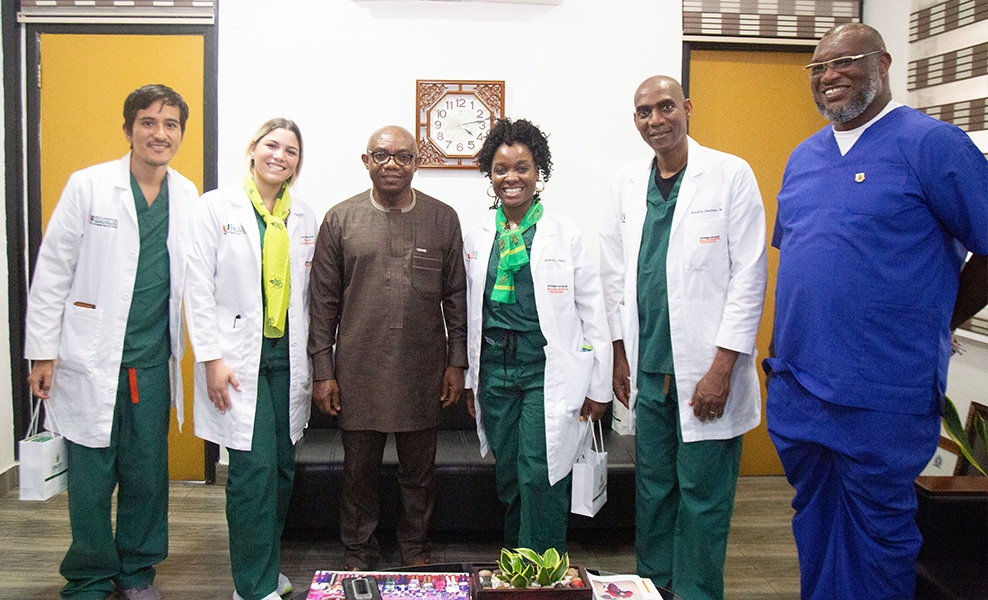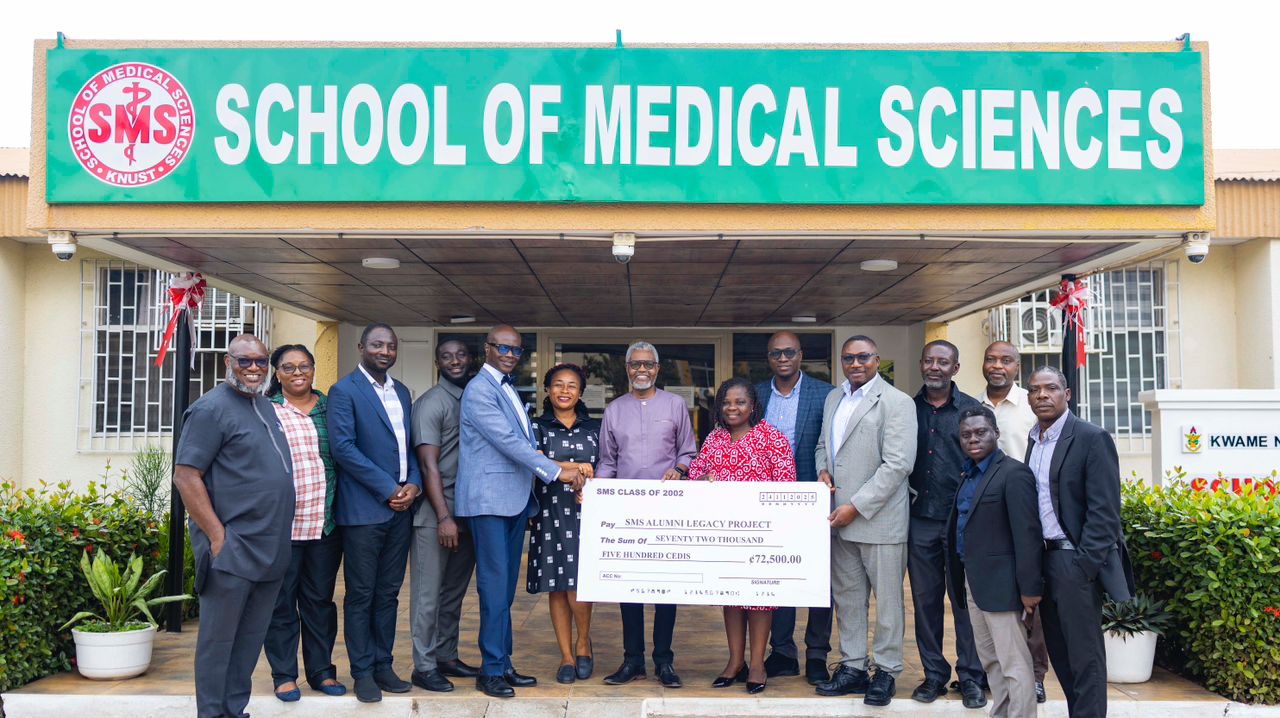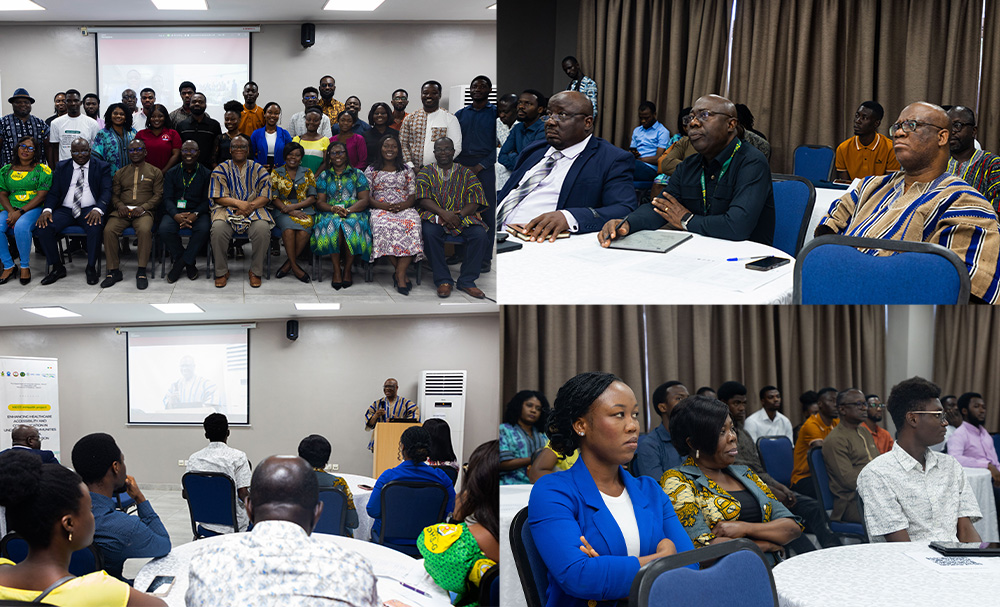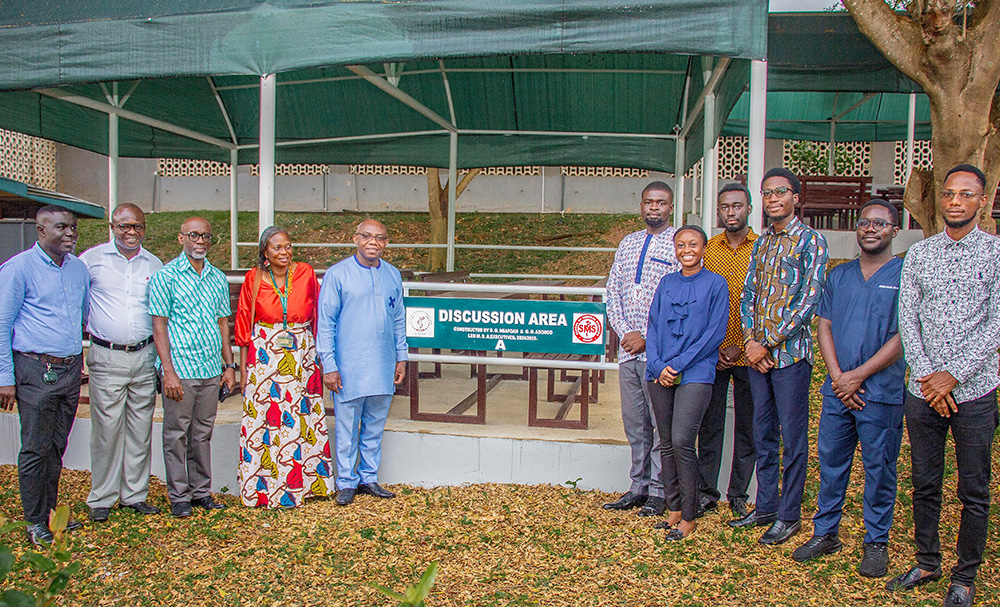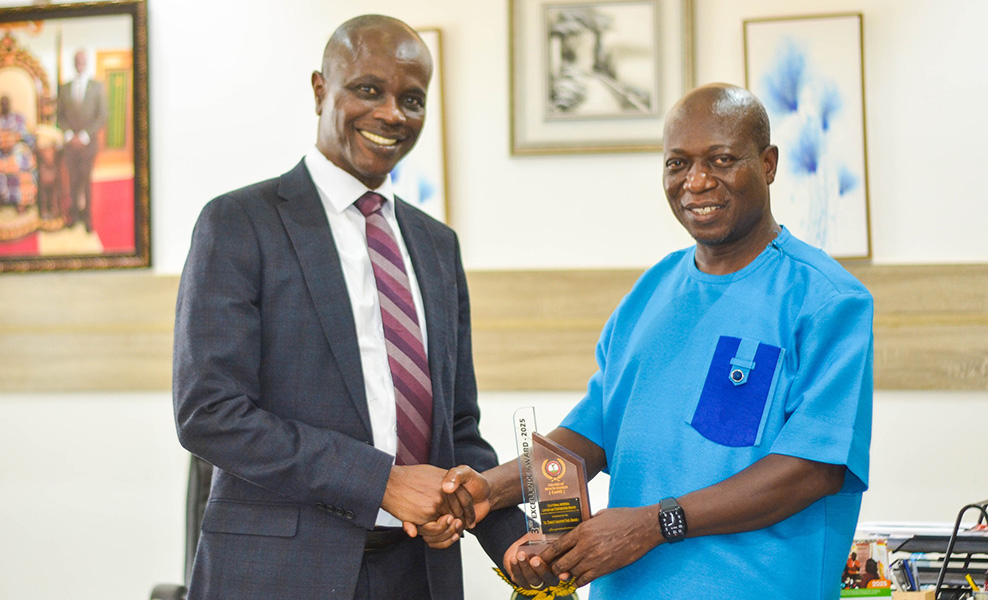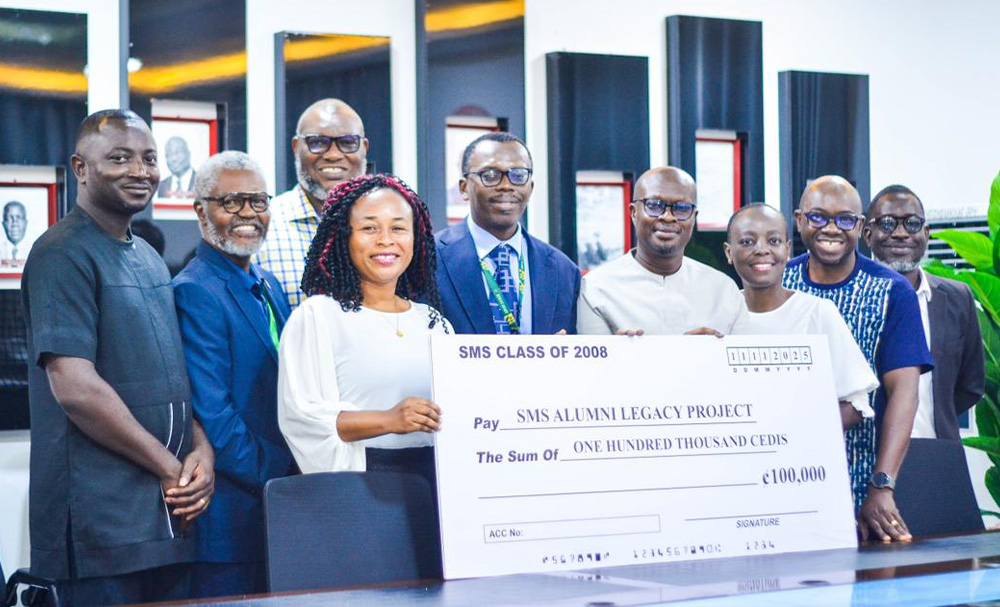The College of Health Sciences at Kwame Nkrumah University of Science and Technology (KNUST) recently welcomed four prominent researchers from the University of Miami; Osmaray Morales Casanova, Jovanka Ravix, Omotoso Ayodele, and Alex Sanchez-Cuarrubias. The purpose of their visit, which spanned from August 19th to August 24th, was to collaborate on research involving Single Cell DNA Sequencing of Caribbean, African American, and African breast, fallopian tubes/ovary, and prostate biospecimens.
The visit was part of a collaborative effort between the two institutions to advance cancer research by focusing on single-cell DNA sequencing. This technique is vital for understanding the initiation and progression of cancer, particularly gynecological cancers; breast cancer, and prostate cancer. The researchers from the University of Miami provided on-site training to the local team at KNUST, sharing protocols for studying cancer biology in both cancerous and non-cancerous tissues.
Speaking on behalf of the visiting team, Alex Sanchez-Covarrubias emphasized that the main objective of the collaboration is to map single cells in tissues that could potentially become cancerous. “As part of this project, we are collecting fresh tissues from donors and participants who agreed to participate in the study. We will then process these tissues to build a comprehensive map of normal tissues to better understand cancer initiation,” he explained. “Additionally, we are conducting genetic testing on participants to determine their genetic profiles and assess their likelihood of developing cancer,” he said. The collaboration also aims to study population genetics in Ghana, with the goal of developing a genetic profile of the local population to better understand cancer risks and differences.
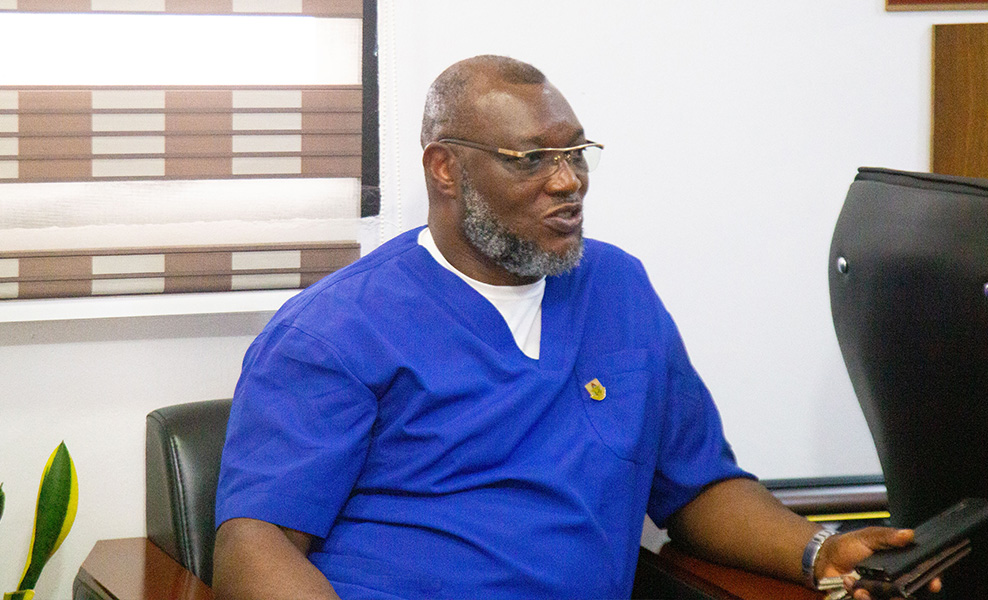
Professor Nicholas Titiloye, the Head of KNUST Department of Pathology and the local study Principal Investigator on the research, expressed his enthusiasm for the partnership. “It is a pleasure to have researchers from the University of Miami collaborate with KNUST on this project, which is at the forefront of genetic study in the region,” he said. The research will enable the examination of cancer disparities among Caribbean, African American, and African populations. “It is also a significant honour that KNUST is the first university in Ghana to host this collaboration” he added.
Professor Titiloye highlighted that KNUST would serve as the central hub linking other research centers across Ghana. “Through this collaboration, we will develop both manpower and infrastructure for advanced cancer research within the university. It has been a fantastic one-week workshop, and we hope this partnership will continue to flourish,” he added.
During their visit, the University of Miami team met with the Provost of the KNUST College of Health Sciences, Deans, Scientists, Biomedical Researchers, and Students. The interactions were highly appreciated by all parties, with the visitors noting the cooperative spirit and enthusiasm for future collaborative efforts.
The collaboration between the University of Miami and KNUST represents a significant step forward in cancer research and genetic studies. The Single Cell Sequencing Ghana research team from KNUST includes:
1. Prof Nicholas Titiloye - Department of Pathology (Principal Investigator)
2. Dr Bernard Petershie - Department of Pathology (Co-Principal Investigator)
3. Dr John Jude Kweku Annan - Department of Obstetrics and Gynaecology (Co-Principal Investigator)
4. Dr Thomas Okpoti Konney - Department of Obstetrics and Gynaecology (Co-Principal Investigator)
5. Dr Samuel Mensh - Department of Surgery (Co-Principal Investigator)
6. Dr Arhin Addal Appiah - Department of Surgery (Co-Principal Investigator)
7. Mrs Naa-Anyima Boateng - Department of Pathology (Research Assistant/Histotechnologist)
8. Mr William Ayibor - Department of Pathology (Research Assistant)
The KNUST team is eager to continue this groundbreaking work and hopes to expand their research capabilities through continued partnerships and advanced training. The initiative marks a significant milestone for KNUST as a leader in cancer research in Ghana and a beacon of hope for broader scientific advancement across Africa.


